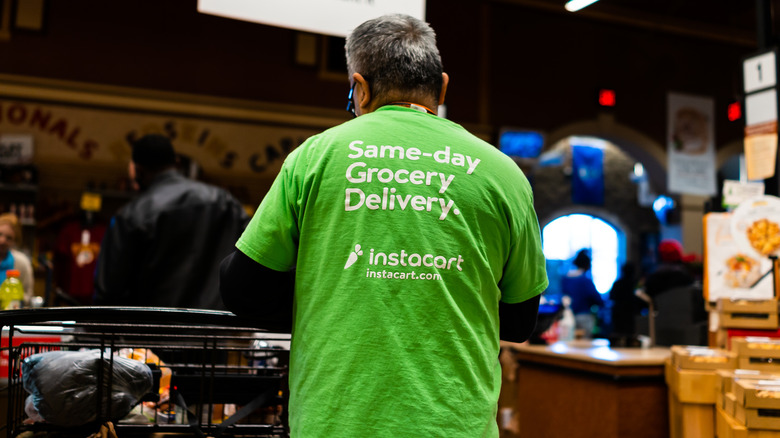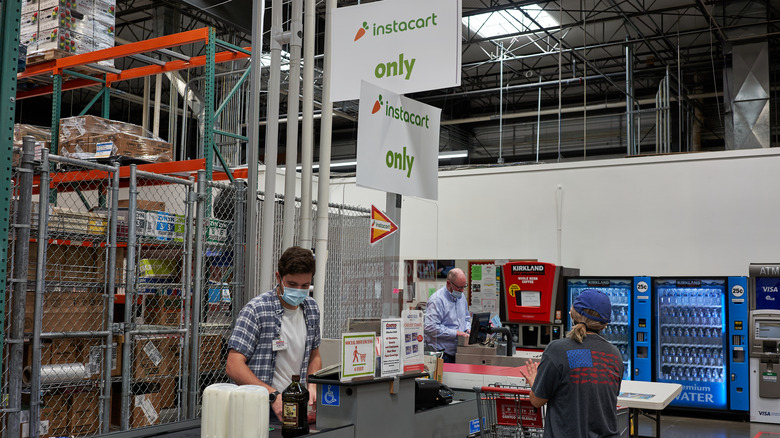Instacart Will Pay Over $45 Million To Settle Another Employee Lawsuit
The evolution of Instacart will forever be inextricably linked to the COVID-19 pandemic. The company existed pre-pandemic, established in 2012, according to Forbes. Business of Apps explains that Instacart wasn't an insta-success, though. In 2019, the company was losing about $25 million every month. How big an effect did the pandemic have on Instacart's revenue and profitability? In April 2020, Instacart posted its first-ever profit, a net of $10 million. For 2021, the company reported $1.8 billion in revenue, and Forbes reckoned that in 2020, the company's then 33-year-old founder, Apoorva Mehta, made the "three comma club," meaning that he became a billionaire.
How did Instacart generate such wealth? On the backs and in the carts and cars of its shoppers. These folks braved the germ-laden air of the grocery stores that many Americans were avoiding. While some sources, like The Ride Share Guy, claim that Instacart shoppers make $20 per hour, including tips, with top performers making $45 per hour, Upper Route Planner states that the national average is actually $13.88 and varies from $7.25 per hour to $25.59, depending on the location.
Instacart has faced criticism and even lawsuits over the way it classifies and compensates workers. In August 2022, the company settled a lawsuit brought by the Attorney General for the District of Columbia over accusations that Instacart misclassified workers, failed to pay sales tax, and wasn't clear about where the money for its service fee was going.
Instacart shoppers in San Diego are going to get paid
In an October 10, 2022 press release, San Diego City Attorney Mara Elliot announced that Instacart settled a lawsuit filed in 2019 by the city on behalf of Instacart workers. The settlement, which was in the amount of $46.5 million, will be primarily distributed among roughly 308,000 workers, proportionate to the number of hours they worked between September 2015 through December 2020. Approximately $6 million will go toward a Consumer Protection Trust Fund.
The City of San Diego filed the suit against Instacart, alleging it misclassified employees as contractors, depriving them of benefits like a minimum wage and overtime as well as contributions to Social Security and unemployment insurance, according to the San Diego Union-Tribune. Elliot said, "We are pleased to get justice for these delivery workers, who, at the height of COVID-19, provided an invaluable service to California households." She went on to urge other gig-economy businesses to "do right by their workers." Though Instacart agreed to settle the lawsuit, it has maintained its position that workers were properly classified and denied any wrongdoing. As Instacart works to reinvent itself, with moves like introducing its first credit card, its San Diego workers can look forward to a few extra bucks in the bank.

